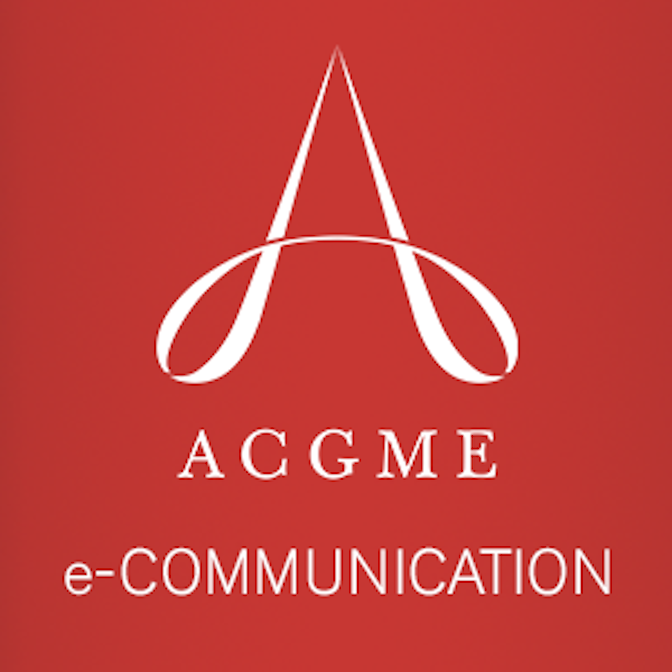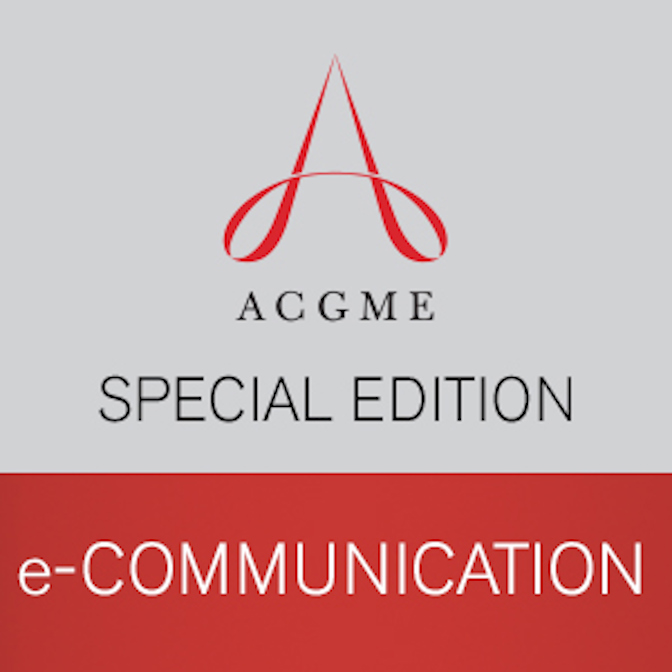Programs
ACGME Announces New Diversity and Inclusion Award
The ACGME's newest award will annually recognize efforts to achieve diversity and inclusion in graduate medical education.

Coalition for Physician Accountability Releases Statement on Maintaining Quality and Safety Standards Amid COVID-19
The Coalition for Physician Accountability, of which the ACGME is a member, released the statement and resources, Maintaining Quality and Safety Standards Amid COVID-19.
Coalition for Physician Accountability Releases Report on Learner Transitions from Medical Schools to Residency Programs in 2020
The Coalition for Physician Accountability, of which the ACGME is a member, released a report and recommendations on learner transitions from medical school into residency programs in 2020.
ACGME e-Communication - May 18, 2020
This special edition of the weekly e-Communication includes COVID-19 News including additional Frequently Asked Questions, information on the Sponsoring Institution Idea Exchange, Review and Recognition Committee News, and more.

ACGME Announces New Diversity and Inclusion Award
This new award, which will be given in 2021, recognizes efforts to achieve diversity and inclusion in graduate medical education.

AOA and ACGME Statement on Joint Principles for Physician Education and Training during the COVID-19 Pandemic
The AOA and ACGME are providing this statement of joint principles to help clarify for residents/fellows and programs the issues related to board certification that have arisen through the circumstances of the COVID-19 pandemic.
New England Journal of Medicine (NEJM) Article Highlights Ways to Protect Clinician Well-Being During the COVID-19 Pandemic
Special e-Communication - May 11, 2020
This special edition of the weekly e-Communication includes the announcement of the new ACGME Diversity and Inclusion Awards, a new policy statement, Coalition for Physician Accountability report, and new Frequently Asked Questions.

ACGME Announces Policy to Enforce Compliance with COVID-19 Prevailing Requirements
The ACGME has updated its Procedures for Alleged Egregious Events to address how it will rapidly respond to alleged non-compliance with the four prevailing COVID-19 priority requirements, including the addition of a public sanction.
May 4, 2020
This special edition of the ACGME's weekly e-Communication includes information on a well-being webinar May 7, and Frequently Asked Questions.

